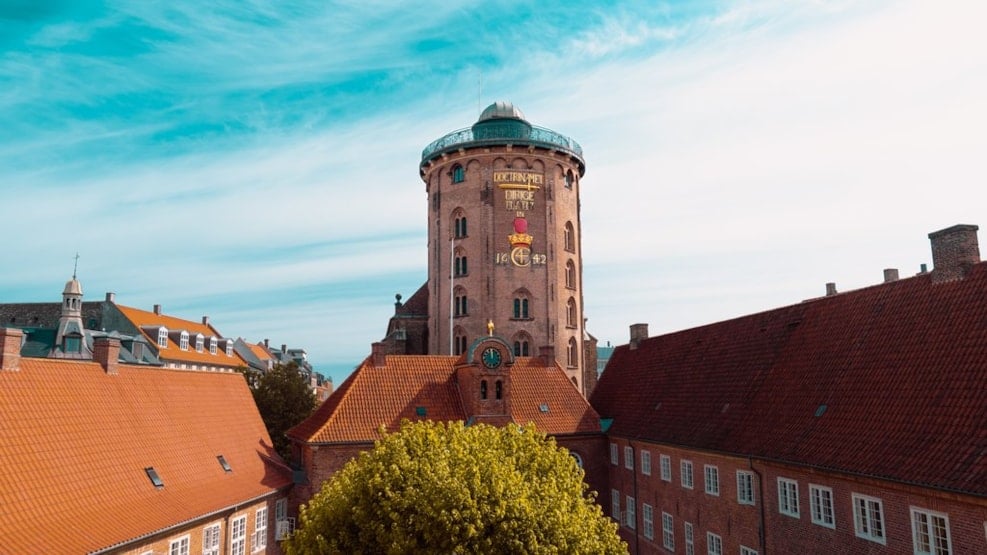
The Round Tower
In the heart of Copenhagen lies the Round Tower – one of Denmark's most iconic landmarks. Besides its distinctive Spiral Ramp, which leads to a spectacular 360-degree view of the city, the tower also houses astronomy in the Observatory and changing exhibitions, concerts, talks and events in the Library Hall.
The nearly 400-year-old tower is the perfect destination for both children and adults. Here, you’ll experience the echo of Danish history, a cultural encounter, and a unique panoramic view of the city. During the winter season, you can even observe planets from the Observatory at the top.
A Unique Walk Through History
The famous Spiral Ramp, the only one of its kind in Denmark, winds 7½ times around the tower’s hollow core. It starts at the entrance on Købmagergade and ends at the stairs leading to the tower’s top and viewing platform, offering a view of the city’s spires and rooftops. Its small niches are popular hiding spots for children and a pleasant resting place for adults.
The Spiral Ramp is brimming with stories and anecdotes – from the time the tower served as a bomb shelter, to the German engineer Lorentzen who drove a car up it, or the choirboy who tragically fell through the hollow core during a fateful game of hide-and-seek. You can hear more about these tales in the Round Tower’s audio stories, available on your favorite podcast app, the tower’s website, or via QR codes in the tower.
Get Closer to the Stars
The Round Tower is Europe’s oldest functioning observatory building. King Christian IV had it constructed so that astronomers from the University of Copenhagen could observe stars high above the city’s lights and smoke. For centuries, it was the center of Danish astronomy.
In addition to the viewing platform, you’ll find the Round Tower’s observatory at the top, which is manned two evenings a week during the winter season. Visitors can look at planets through the large telescope, guided by the tower’s astronomers. On select Sundays during the summer season, you can even observe the Sun and sunspots through a special protective filter.
Cultural Highlights Half-way Up
The long Spiral Ramp also leads to the Library Hall, located halfway up the tower. Originally, the Library Hall was designed to house the University of Copenhagen’s book collection. When the young fairy tale writer Hans Christian Andersen arrived in Copenhagen, one of his first visits was to the Round Tower. Since then, he frequently used the University Library for inspiration and often referenced the tower in his writing.
Today, the bright, beautiful hall hosts a wide range of cultural events – concerts, talks and activities for both children and adults. Visitors can enjoy rotating exhibitions that span art, science and history. The Library Hall also features the Round Tower’s shop and café, where you can enjoy a cup of coffee and find books, posters and other charming items to take home.
The King’s Powerful Monument
The Round Tower was built in 1642 by Denmark’s architecture-enthusiastic king, Christian IV. The cornerstone was laid on July 7, 1637, and five years later the tower was completed as the first part of the Trinitatis Complex – designed to house three entities: the Observatory at the top, the University Library on the floor above Trinitatis Church, and the church itself below.
King Christian IV personally sketched the famous golden rebus on the tower’s façade, which translates to: “Guide, God, the true teaching and justice into the heart of King Christian IV.”
Visit the Round Tower’s website for more information about opening hours, prices, and practical details – and to see the current exhibitions or events.